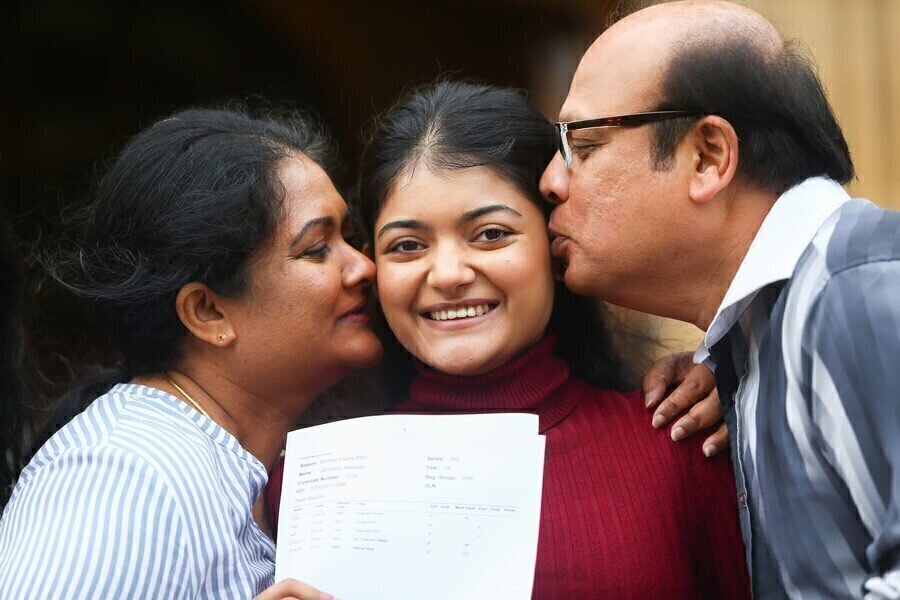UK independent school scholarships and bursaries: What you need to know
Entering the world of UK independent education as a parent can be a daunting prospect, particularly when it comes to covering the cost of school fees. But there is some good news: a large amount of financial support is available to families, and an independent school education is more accessible than many parents might think. Whether you're starting your school search or considering a move at senior or sixth form level, it is important to understand the range of options that are available when it comes to scholarships and bursaries.
In this guide, we explain what UK independent school scholarships and bursaries are, how to apply, and what to expect, with statistics taken from the ISC Census & Annual Report 2025 included to help you understand the breadth of support available across the sector.
What is a UK independent school bursary?
A bursary is a type of financial support offered by independent schools, which is designed to help families who would otherwise find it difficult to afford the fees. Most bursaries are means-tested, meaning the amount awarded depends on a family’s financial circumstances.
Types of Bursaries:
- Means-Tested Bursaries: These are the most common and are assessed based on household income, assets, and outgoings.
- Full Bursaries: Cover 100% of school fees. In 2024/25, over 7,245 pupils attending ISC member schools received a full bursary and paid no fees at all.
- Partial Bursaries: Typically cover 25% to 75% of fees. Over half of all means-tested bursaries that are awarded to pupils attending ISC member schools cover 40% or more of total fees.
- Hardship Bursaries: Emergency financial assistance offered to current pupils whose family circumstances change.
- Special Category Bursaries: Offered to children of clergy, military families, or school staff. These can also be means-tested.
Did you know? In 2024/25, ISC member schools provided nearly £550 million in means-tested assistance, with the average bursary worth £13,850 per year.
What is a UK independent school scholarship?
A scholarship is an award given in recognition of exceptional talent or potential. Unlike bursaries, scholarships are usually not means-tested, although some schools combine merit awards with financial need assessments.
Types of Scholarships:
- Academic Scholarships: For pupils with outstanding academic ability.
- Music Scholarships: For talented musicians, they often include subsidised instrumental lessons.
- Sport Scholarships: For athletes competing at county, regional, or national level.
- Art, Drama, or Performing Arts Scholarships: For creative excellence.
- All-Rounder Awards: For pupils showing promise in multiple areas.
In 2024/25, over 58,000 pupils attending ISC member schools received non-means-tested scholarships, with an average award of £3,778. While most scholarships offer smaller discounts than bursaries, some families combine both to make a significant contribution.
Information about UK independent school bursaries and scholarships, taken from the ISC Census and Annual Report 2025
- A total of £1.5 billion in fee assistance was provided in 2024/25.
- Independent schools directly contributed £1.1 billion (73%) of total fee assistance
- 34.5% of all ISC member school pupils (183,487 children) received some form of fee assistance.
- 36,918 pupils received means-tested bursaries, with an average value of £13,850.
- 7,245 of those pupils paid no fees at all.
- 2,172 pupils were awarded means-tested scholarships, with an average value of £9,621. Of these, 227 scholarships covered 100% of the fees.
- Government support (mainly for armed forces families) helped 1,419 pupils.
How to apply for a scholarship or bursary
Each school sets its process, but here are some general steps to follow.
For Bursaries:
- Start early: ideally 12-18 months before your child’s expected start date.
- Contact the school's admissions or bursar's office.
- You can expect to complete a means-testing form that details your income, assets, and expenditures.
- Some schools conduct a home visit or request additional documents.
For scholarships:
- Check the school's website for scholarship categories and eligibility requirements.
- Applications may involve exams, auditions, portfolios, or interviews.
- Scholarships can often be awarded independently or in combination with bursaries.
Tip: It is perfectly acceptable, and commonplace, to apply for both a scholarship and a bursary. Some schools even factor scholarships into bursary calculations.
Points to consider
- Scholarships focus more on ability, whereas bursaries aim to widen access to independent education.
- Schools have limited funds: applying early and preparing well can make a real difference to your chances of success.
- Many independent schools are actively working to become more inclusive by providing bursaries.
FAQs: Scholarships and bursaries at a glance
Can I apply for a bursary even if my child isn't exceptionally gifted?
Yes, bursaries are based on financial need, not ability.
Can my child receive both a scholarship and a bursary?
Yes, many schools offer both concurrently.
What's the income threshold for a bursary?
There's no universal cut-off, but bursaries are typically targeted at households earning under £60,000-£80,000; however, some schools support higher-income families with significant outgoings.
Are bursaries only for entry at Year 7 or Year 9?
No, schools often have bursaries available for sixth form entry and even occasional mid-year transfers.
Will applying for a bursary affect my child's chances of admission?
Schools will typically assess your child's application on merit first and then separately consider their bursary eligibility.
Scholarships and bursaries exist to make independent schools more accessible, with over one-third of all pupils now in receipt of financial assistance.
